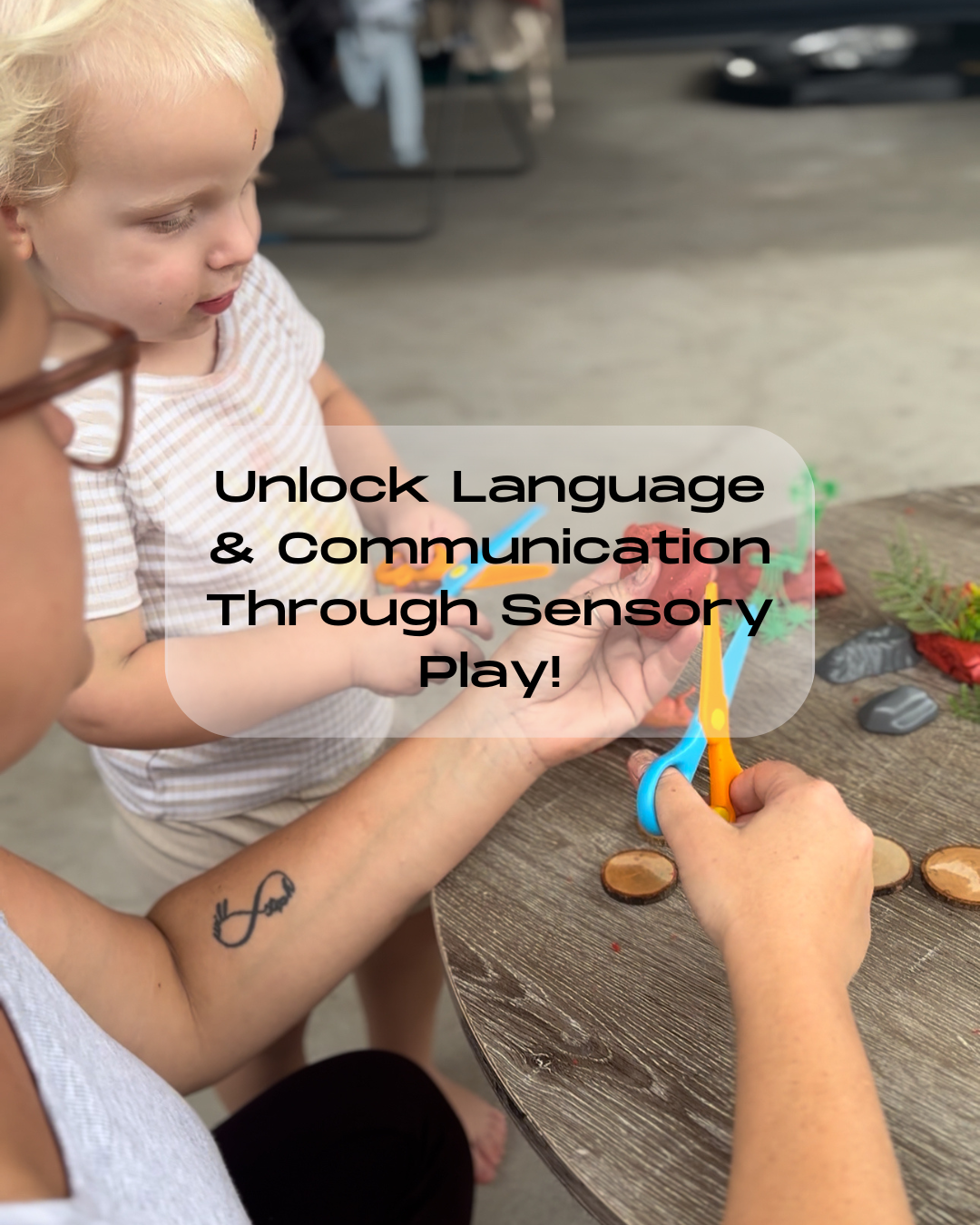
How Sensory Play Boosts Your Toddler’s Communication Skills: Real-Life Moments and Practical Tips.
Share
Boosting Communication Skills Through Sensory Play
Have you ever watched your child playing and wondered, "Is this more than just fun?" As an educator and mum passionate about sensory play, I see firsthand every day that sensory experiences are powerful building blocks for language and communication.

Recently, I captured a beautiful example with my toddler. We were working together on a simple sensory play activity: cutting playdough with child-safe scissors. Initially, like many toddlers, my child struggled. The scissors felt tricky, the playdough didn’t cooperate, and frustrations began to surface. But here's where the magic happened.
The Power of Sensory Play: Sensory play engages multiple senses at once, creating rich learning opportunities. As my toddler felt the texture of the playdough and manoeuvred the scissors, he was developing crucial fine motor skills. More importantly, during this activity, language bloomed naturally.

Real-life Learning Moments: You can hear clearly in our video my toddler imitating my words and sounds:
-
"Cut!"
-
"Snip!"
-
"Again!"
-
Celebration words: "Yay!" "Did it!"
These interactions aren't accidental; they're foundational for developing vocabulary, comprehension, and expressive language. Every imitation and word repetition strengthens neural connections, supporting your child’s overall development.
How to Facilitate Communication through Sensory Play:
-
Narrate Your Actions: Talk clearly and simply about what you and your child are doing. "We're cutting the dough!" "You're squeezing it tight!"
-
Celebrate Every Attempt: Each attempt is worth praise, building confidence and reinforcing language through positive feedback.
-
Encourage Imitation: Model simple words or phrases and encourage your child to repeat after you. Make it playful, engaging, and stress-free.

Why it Matters for Neurodiverse Children: As a parent to a neurodiverse child, sensory play becomes even more crucial. Activities like playdough cutting offer structured, predictable yet flexible experiences that reduce anxiety, promote self-regulation, and significantly enhance communication skills.
Sensory play isn't just play—it’s a powerful educational experience disguised as simple fun.
Ready to see the benefits yourself? Try it out, and watch your child's communication flourish!
Explore more sensory activities on our blog.

